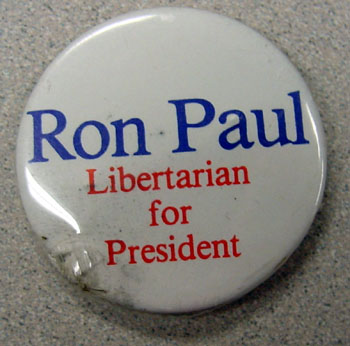 The Presidential nomination cycle for 2008 has already got off to a very early and excited start. However, it is worth remembering that there is still a very long way to go, and just because a few very high profile candidates are getting a lot of coverage, things are far from settled. If we think back to 2004, Howard Dean was nowhere at this stage, before blogging powered his rise through the ranks of Democratic hopefuls (or at least it did until January 2004). So there is certainly some sense in being on the look-out, both for a candidate who might buck the odds and an application that might allow them to do it.
The Presidential nomination cycle for 2008 has already got off to a very early and excited start. However, it is worth remembering that there is still a very long way to go, and just because a few very high profile candidates are getting a lot of coverage, things are far from settled. If we think back to 2004, Howard Dean was nowhere at this stage, before blogging powered his rise through the ranks of Democratic hopefuls (or at least it did until January 2004). So there is certainly some sense in being on the look-out, both for a candidate who might buck the odds and an application that might allow them to do it.
It is highly unlikely, but it is just possible something like that is starting to happen. The candidate is Ron Paul, ten term Congressman for the Texas 14th and the application Digg. Unlike the other GOP high flyers, Paul is unapologetically on the libertarian wing of the party. His exploratory committee website claims that he "[I]s the leading advocate for freedom in our nation’s capital. As a member of the U.S. House of Representatives, Dr. Paul tirelessly works for limited constitutional government, low taxes, free markets, and a return to sound monetary policies." He also proudly boasts about being one of only four Congressman to have endorsed Ronald Reagan in 1976. It isn't hard to see why patter like this might appeal to Republican activists who haven't really found a candidate to fall in love with as yet (McCain - they always hated him; Giuliani - like the 9/11 stuff, but not so keen on his attitude to guns, gays and abortions; Romney - seems to be a flip-flopper, and that's before the "M word" has even be mentioned).
According the Biving's Report (and more here) Paul's supporters are using Digg to publicise stories about their favoured guy, giving him a clear advantage in this particular online environment. Furthermore, this is translating into other places. He now has 12,000 MySpace friends and an online ABC poll, asking who had won the GOP's first debate, was resoundingly won by Paul - a candidate, it should be remembered, who barely registers in opinion polls and gets very little mainstream media coverage. Andy blogged recently on the power of collective action in a web 2.0 environment. It makes sense that similar patterns could emerge during political interactions, especially if a candidate has a number of ideologically motivated, active and dedicated supporters. The question is, as always, what impact will this translate in real electoral terms?
The odds are that nothing will come of this. Predicating American elections is clearly a mugs game - but I've had my money on Romney to be the Republican candidate for about eighteen months now, and I would still go with that. Paul's opinion poll ratings will probably remain very low. His approval ratings amongst the conservative right of the Republican Party probably won't take off (being true to his political creed, Paul is probably too libertarian for their tastes; he, for example, is against a constitutional amendment defining marriage). But, given the unpredictable impact new technology can have on an election, you never know.
